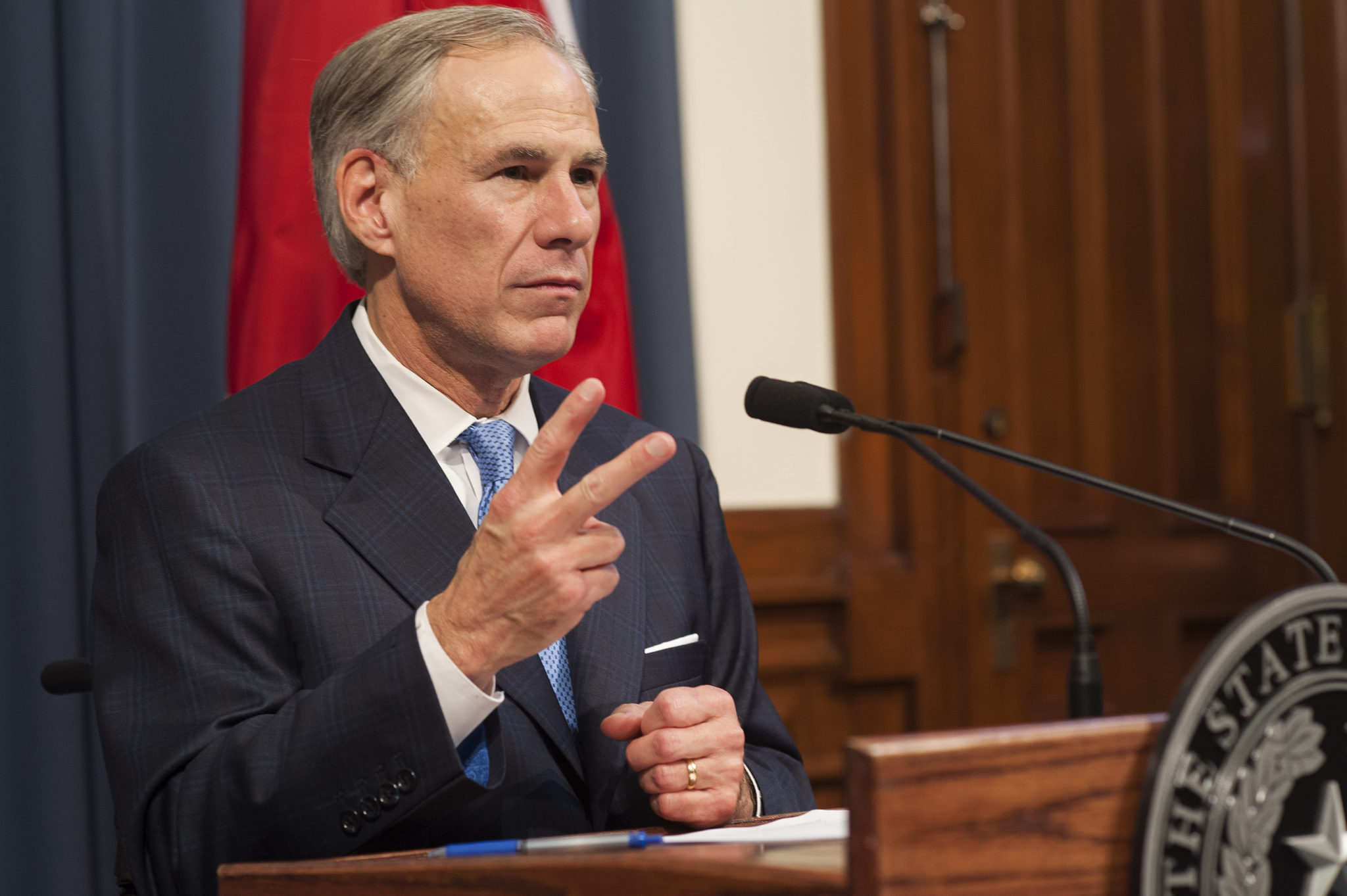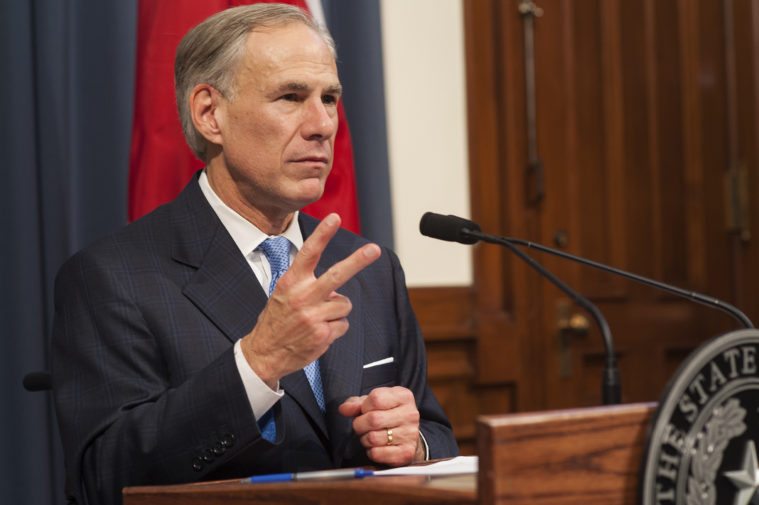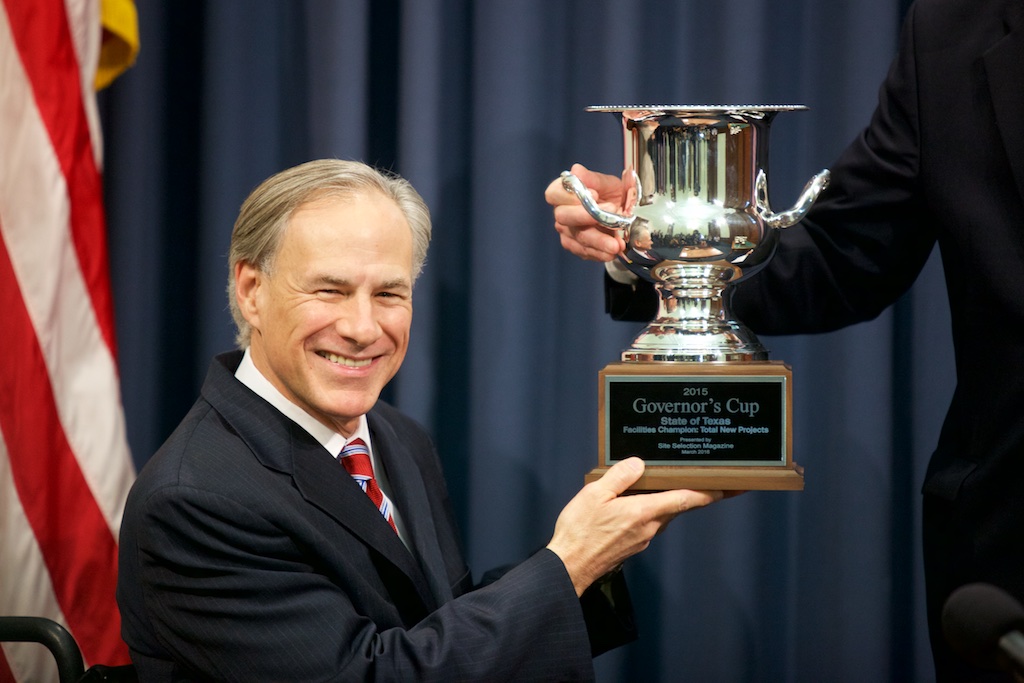
Governor Greg Abbott Vetoes Women’s Health Committee Despite Ongoing Crises
Rep. Donna Howard said Abbott’s veto is “disgraceful” and jeopardizes “health and safety of women across the state.”


Texas has the highest maternal mortality rate in the developed world, the highest rate of repeat teen pregnancy in the United States, the highest uninsured rate in the country and an ongoing Zika outbreak that threatens pregnant women. Yet Governor Greg Abbott unilaterally ended a committee that advises the state on women’s health programs.
Abbott on Thursday vetoed a bill with bipartisan support by Senator Borris Miles, D-Houston, that would continue the Women’s Health Advisory Committee past September.
“I am shocked and frustrated by the governor’s veto,” said Representative Donna Howard, D-Austin, who wrote the House companion to Miles’ bill. “At no point during the past six months had the governor’s office expressed any concerns to me over the legislation. This absentee style is disgraceful, and it is now jeopardizing the health and safety of women across the state.”

The committee was created in 2015 to help to consolidate the state’s various women’s health programs after Texas pulled of the Medicaid Women’s Health Program to create its own version in 2013 that bans Planned Parenthood. The decision resulted in the state forgoing millions of federal dollars to form a state-funded program now called the Healthy Texas Women’s Program, which serves far fewer women.
The committee heard public testimony this week on a waiver request the state is filing to get the federal funding for the Healthy Texas Women program, without restoring access to Planned Parenthood.
Abbott said Thursday that the women’s health committee had “achieved its mandate” and was no longer needed, and the state health department agreed in an email to the Observer. “The committee did not administer programs or provide any sort of health care, and the consolidation [of programs] has occurred successfully under the banner of Healthy Texas Women,” wrote Christine Mann, press officer for the Texas Health and Human Services Commission.
But women’s health advocates say the Healthy Texas Women program is failing to meet the family planning needs of the state and requires further review.
Data released by the state show a significant decline in women accessing services under the state program. The number of clients served dropped from nearly 104,000 in the Medicaid program in 2012 — before the state took over — to about 70,000 in Texas’ program in 2016.
“I am disappointed,” Janet Realini, the committee’s vice chair, wrote in an email to the Observer. “The WHAC has been an important forum for both providers and community stakeholders to work with [the state health department] to maximize the effectiveness of the new women’s health programs. The programs are still in a relatively early stage of roll-out, with improvements still needed.”
In his veto, Abbott wrote, “The state should focus on programs that address more clearly identifiable needs, like my call for action to address the maternal mortality rate during the special session.” In a tweet last week, Abbott said he put “solutions” to the problem on the special session agenda. In fact, he asked the Legislature to extend a task force that researches maternal deaths, but does not actually solve them.
The primary recommendation of the task force is to extend access to care for women after the first year of their pregnancy, something the Legislature largely failed to do. Kicking Planned Parenthood out of the state women’s health program — because they provide abortions — dramatically reduced access to care, which was on top of funding cuts in 2011 that forced 82 family planning clinics in the state to close.
Planned Parenthood had previously served more than 40 percent of the women enrolled in the Medicaid Women’s Health Program in Texas.
“Dismantling this committee is incredibly shortsighted, especially since the maternal mortality rates are skyrocketing across our state,” Miles said in a statement. “This bill passed both chambers with bipartisan support because legislators knew this committee’s work was important for our state and for improving women’s health.”


